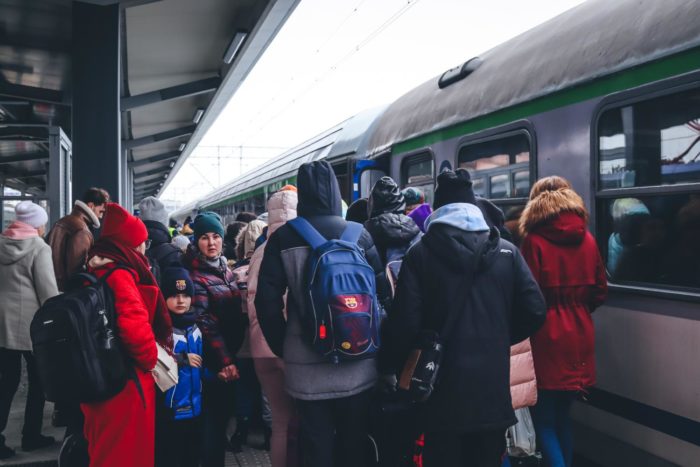"Slava Ukraini, Heroyam Slava!"
Carrying a powerful message of persistence and heroism, this greeting has been bringing people, Ukrainians and foreigners alike, together since the beginning of the war. But, as their beloved country is getting leveled to the ground and their future is uncertain, Ukrainians’ voices often shake when they say these words.
It is estimated that 2.5 million people have fled Ukraine since the war broke out on 24 February. Out of that, Poland took in around 1.7 million
. Normally divided society now stands united, helping those who had to flee their homes amid Russian bombardments.
Poland is being praised internationally for its response to the influx of refugees. And rightly so as there are thousands of people volunteering at the Polish-Ukraine border and at train stations around the country.
People have been organizing food and clothes collections and delivering them to reception centers. Families across the country have been opening their houses up to Ukrainians who need a place to stay and cars have been waiting in lines close to the border to offer them free rides.
But as the war intensifies and more and more people seek protection in Poland, helping all those in need becomes increasingly challenging.
Trains bear the promise of safety
Trains departing from the Poland-Ukraine border are so overcrowded that no one can pass through narrow corridors. Refugees sit wherever there is space and often have no choice but to stand for the whole duration of the journey.
Ukrainians can use trains in Poland for free but with tens of thousands desperately trying to get away from the border, they have to wait for hours before managing to catch one.
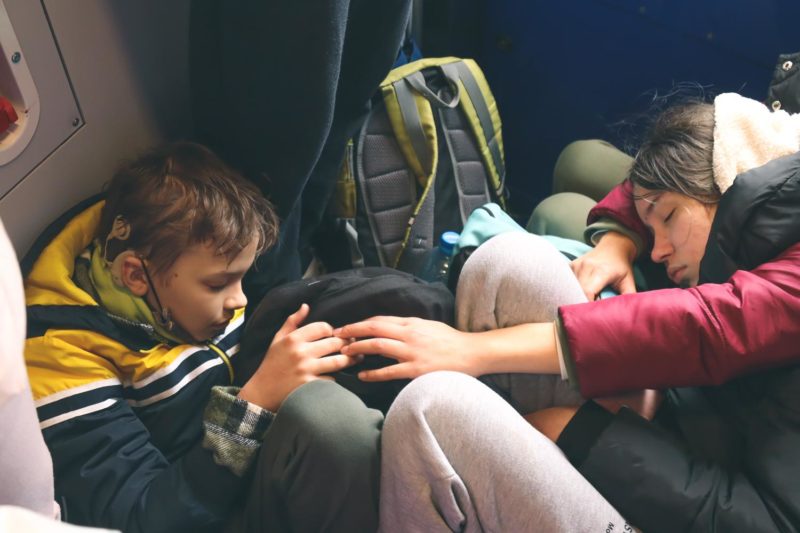
Once they get on one, however, they can feel a great sense of brotherhood. Although exhausted, many with puffy eyes after days of crying, Ukrainians exchange stories and offer each other words of encouragement. Their spirit will not be broken, no matter how long the war lasts.
When the trains’ doors open at stations along the way, volunteers pass food packages to those inside. Moreover, at platforms in major cities, there are baby strollers waiting for refugees arriving with children. The mobilization of Polish society is admirable, but, as there is no end in sight to the war, some wonder how long Poles can keep up these efforts.
Humanitarian tragedy in the making
With the number of Ukrainians arriving in Poland going up each day, Poland is starting to struggle to accommodate all the refugees.
I went to Warsaw Central Train Station at three a.m. and I found thousands of refugees sleeping on the ground on blankets provided by volunteers. A family next to a family, separated by piles of suitcases and bags with few belongings they managed to pack amid fleeing Russian aggression.
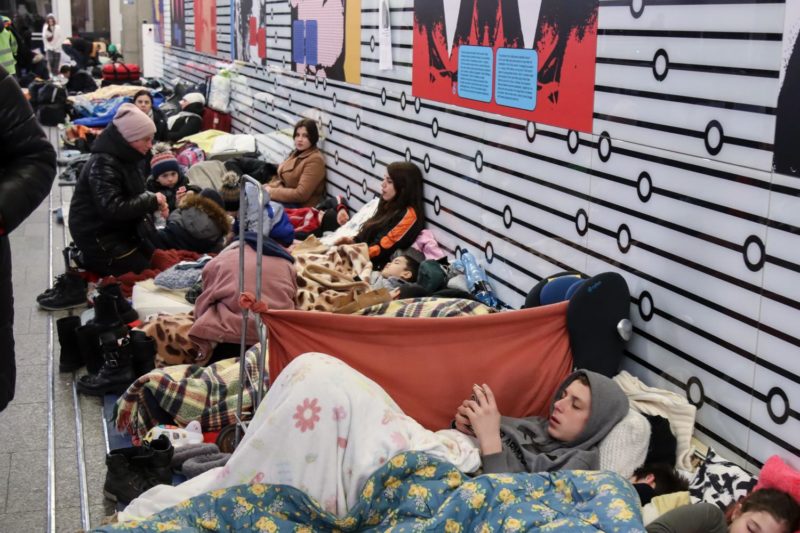
"It took us three days to get to Warsaw," a group of Ukrainian teenagers who fled Kyiv when the war broke out told me. They intend to go to Berlin soon but decided to spend some time in Warsaw on the way to help those who, just like them, lost everything they had in Ukraine overnight.
There already are so many improvised beds and sleeping bags laying around that one can barely see the ground. And yet, the station sees tens of thousands of new arrivals each day.
Ukrainians I talked to at Warsaw Central Train Station were overwhelmed and scared. One day they were enjoying their day in a park in a Ukrainian town they loved, the other a crowded train station became their home.
Poland will not cope alone
"I want to stay close to the border so I can go back to Ukraine right after the war ends," a woman I met at Rzeszów train station told me. Many Ukrainians think the same way and want to either stay in border towns or in big cities.
But towns seeing the largest numbers of arrivals from Ukraine, such as Przemyśl, Warsaw, and Krakow, are already expressing concerns about not being able to take more Ukrainians in. Supplies are running out, food donated a while ago is going out of date, and there is no space for refugees to sleep.
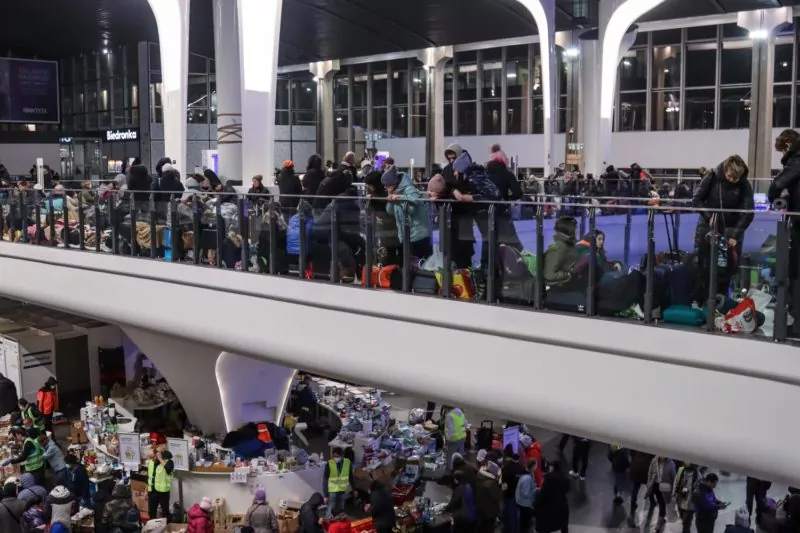
Then, the enthusiasm of volunteers seems to be fading away. As things go with such crises, people tend to lose interest very quickly. Right after the war broke out, tens of thousands of volunteers flocked to the border and train stations but now there are fewer and fewer people there each day.
"I try to help as much as I can but I have a job and I live outside of the city so I cannot be here every day," Adam, a volunteer who comes to the station to play with Ukrainian children, told me.
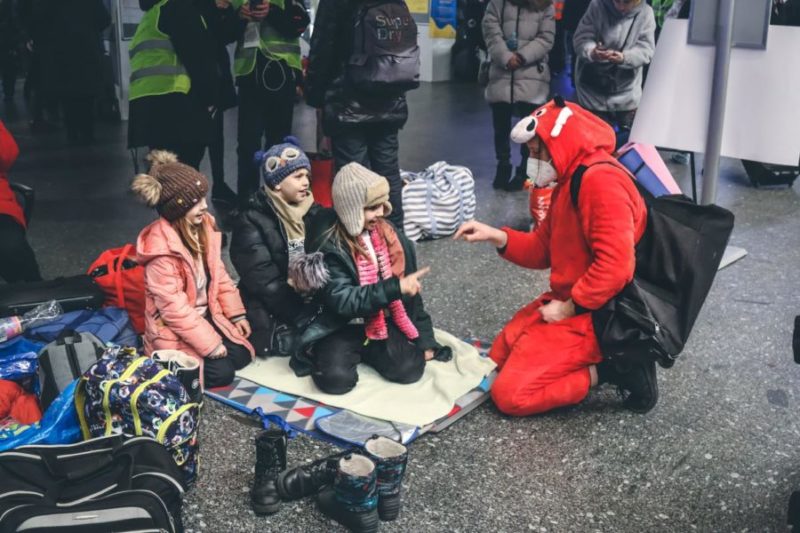
Poland is doing an incredible job in helping Ukrainians reach safety but it cannot keep doing it on its own. The Polish government needs to turn to other EU countries for assistance in financing the creation of temporary centers for refugees and in stocking up on critical supplies.
For now, there still are piles of food, medicine, sanitary products, or even stuffed animals waiting for refugees arriving at the border. But local authorities and volunteers are coming under growing pressure and the longer the war lasts, the more difficult it will be to respond to the needs of Ukrainian refugees.
If other countries do not step up their game and offer more assistance to Poland, Ukrainians might face a catastrophe within a catastrophe and find themselves left alone in conditions that no human should ever experience.
 Katarzyna Rybarczyk is a Political Correspondent for Immigration Advice Service, an immigration law firm helping forcibly displaced persons claim asylum. She covers humanitarian issues and conflicts.
Katarzyna Rybarczyk is a Political Correspondent for Immigration Advice Service, an immigration law firm helping forcibly displaced persons claim asylum. She covers humanitarian issues and conflicts.
Read more:
- Students launch site to connect Ukrainian refugees with potential hosts abroad
- “The last week was pure horror and hell,” evacuee from besieged Mariupol recalls
- Russia disrupts humanitarian convoys and evacuation from the war zone in Ukraine
- “I understand that this is genocide.” Oleksandr, 34, Kharkiv
- How the Ukrainian-Polish partnership can pass the test of history (2016)
- Four inspiring stories of refugees who found success in Kyiv (2015)

